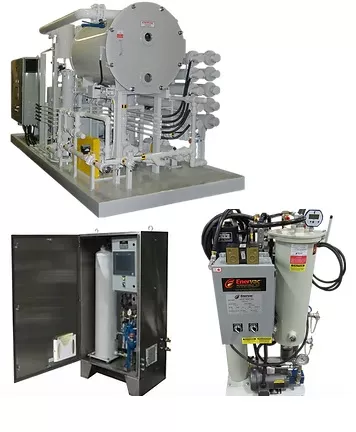Why Transformer Oil Regeneration Is Crucial for Effectiveness
Why Transformer Oil Regeneration Is Crucial for Effectiveness
Blog Article
Why Regenerated Transformer Oil Is Necessary for Reliable Power Equipments
The essential function of regenerated transformer oil in guaranteeing the dependability of power systems can not be overemphasized. By recovering the oil's fundamental chemical and physical homes, the regrowth process considerably boosts its dielectric strength and thermal performance.
Relevance of Transformer Oil
Transformer oil plays a crucial duty in the efficient operation of electrical transformers. By providing thermal conductivity, transformer oil dissipates heat produced throughout electric operation, which is important for maintaining ideal operating temperature levels and prolonging the life expectancy of the tools.
Moreover, transformer oil works as a barrier against wetness and air, which can result in oxidation and degradation of transformer products. The visibility of contaminants in the oil can significantly harm its protecting homes, resulting in operational inefficiencies and possible equipment failure. Regular tracking and maintenance of transformer oil are as a result critical to making certain the continued effectiveness of transformers.
The high quality and make-up of transformer oil are vital, as they directly affect the dependability and performance of the electrical systems in which they run. Recognizing the relevance of transformer oil is vital for utilities and sectors reliant on robust power framework, stressing the requirement for efficient management and regeneration processes to preserve oil honesty gradually.
Advantages of Regrowth Refine

Furthermore, the regrowth procedure mitigates the degradation of oil, which can cause increased oxidation and acid formation. This not only enhances the reliability of the oil but likewise reduces the threat of transformer failings due to insulation failure. The boosted top quality of regenerated oil enables transformers to run at optimal levels, ultimately resulting in improved power performance and reduced functional costs.
Furthermore, the regrowth procedure adds to keeping the total health of the power system. Transformers can run longer without the need for oil replacement, therefore reducing downtime and upkeep initiatives. In summary, the regeneration procedure offers considerable benefits by enhancing the longevity and efficiency of transformer oil, guaranteeing that power systems operate reliably and efficiently with time.
Environmental Influence and Sustainability
The regeneration procedure of transformer oil significantly reduces environmental issues connected with oil disposal and waste management. Conventional disposal techniques for used transformer oil pose significant dangers, consisting of soil contamination and water pollution. By regenerating oil, these threats are substantially lowered, as the procedure reuses existing resources rather of adding to throw away build-up.
Furthermore, regenerated transformer oil can be recycled in different applications, which promotes a round economic situation. This not only minimizes the demand for virgin oil removal-- a process that can be environmentally destructive-- yet also saves natural deposits. The regrowth procedure their explanation itself employs innovative filtration and purification techniques that eliminate hazardous impurities, making sure that the end product surpasses or satisfies market standards for efficiency and safety.

Enhancing Transformer Performance
Significant enhancements in transformer efficiency can be achieved with the usage of regenerated transformer oil. This oil, produced through sophisticated filtration processes, substantially boosts the electric insulation properties of transformers. By eliminating contaminations and contaminants that generally jeopardize performance, regenerated oil makes sure remarkable dielectric toughness, reducing the risk of electrical failings.
Additionally, regenerated transformer oil shows boosted thermal conductivity, which helps with efficient warm dissipation. This particular is vital for keeping optimal operating temperatures, thus lengthening the life-span of transformers and decreasing the likelihood of getting too hot - Regenerated Transformer Oil. Enhanced thermal management additionally adds to the overall dependability of power systems
Additionally, the chemical stability of restored oil stops the development of destructive acids and sludge, which can negatively affect transformer components. By preserving a cleaner interior environment, this oil decreases upkeep requirements and expands service intervals.
Cost-Effectiveness and Efficiency
In regards to cost-effectiveness and performance, regrowed transformer oil presents an engaging option to standard oils. The regeneration procedure not only gets rid of pollutants yet likewise restores the oil's original residential or commercial properties, extending its useful life expectancy. This durability converts right into reduced regularity of oil substitute, thus reducing image source operational expenses gradually.
Moreover, using restored oil can dramatically reduce power losses connected with more ineffective protecting fluids. Its exceptional dielectric residential properties guarantee ideal performance, improving the integrity of power systems. Therefore, companies take advantage of reduced upkeep expenses and lowered downtime, promoting a more reliable functional setting.

Final Thought
To conclude, the regrowth of transformer oil plays a critical duty in making certain the dependability and efficiency of power systems. By restoring the necessary chemical and physical residential properties of the oil, this procedure boosts dielectric stamina and thermal conductivity, inevitably decreasing the threat of insulation failure. In addition, the ecological benefits connected with recycling sources add to sustainability efforts, while cost-effectiveness and boosted performance emphasize the need of using regenerated transformer oil in contemporary electrical framework.
Transformer oil plays a vital role in the effective procedure of electrical transformers. Regular surveillance and upkeep of transformer oil are for that reason critical to guaranteeing the proceeded performance of transformers.
The regeneration procedure of transformer oil considerably reduces ecological issues associated with oil disposal and waste management. By extending the lifecycle of transformer oil, the energy and resources usually eaten in generating brand-new oil are significantly decreased.Substantial renovations in transformer performance can be accomplished through the use of regenerated transformer oil.
Report this page